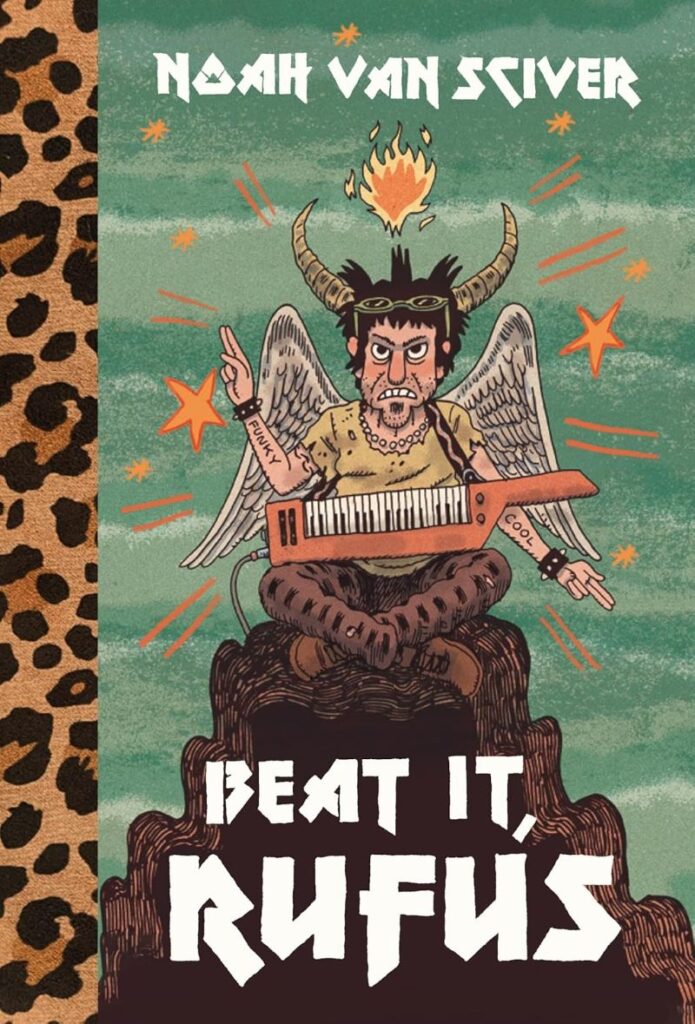
Rufus Baxter never found fame as a rock star, but as he approaches old age he’s still striving toward his impossible goal. Cartoonist Noah Van Sciver’s latest comedic fake biography tracks the fall and further fall of a degenerate loser with visions of grandeur, very much in the same vein as his Fante Bukowski series.
Buy Beat It, Rufus hardcoverRufus is living the dream of thousands of bar-band players, “grinding away, opening for the opening act” as he hopes to make it big. Unfortunately, he’s been at it for decades, with his only faint hope of success quite literally going up in flames when the rest of his early band blew up in a plane crash. Jobless, penniless, and newly evicted from his illegal home in his public storage unit, he hatches a harebrained plan to travel halfway across the country to the headquarters of his old band’s indie record label to demand an accounting and payment of royalties for their only album. Along the way, he also detours into tribal lands in the hopes of scoring peyote, wrecks his lousy car, hitchhikes with a shady character, looks up an old girlfriend, and makes an unexpected discovery about his old bandmates that leads to a possibility for a sustainable path forward, if only he wasn’t so conditioned to ruin everything.
Van Sciver lays out Rufus’s tale in loose, playful lines, clearly relishing the opportunity to tweak the threadbare rock-star accoutrements of his lead character in the present, as well as during flashback sequences to the band’s early days of big hair and bigger clothes. His coloring is fairly basic, but perfectly suited to the cartoonish art style. His greatest strength here though is his writing, as he paints a complex portrait of a very simple character, infusing it with humor in a seemingly stream of consciousness plot that avoids predictability.
The prolific Van Sciver’s long-form works tend to take the form of biographies falling into three categories: autobiography (One Dirty Tree, Maple Terrace), biography (The Hypo, Joseph Smith and the Mormons), and faux biography (Bukowski, Rufus). While he’s adept at all three, his manufactured histories are the most roundly entertaining, as he gets to play in his own imagined sandboxes free from any restrictions of reality. With Rufus, he superbly skewers the delusions of a faded never-was, placing the character in one ridiculous situation after another in his futile attempt to remain relevant in a world that long ago passed him by. Like Bukowski, Rufus’s unwavering belief in his own greatness makes him a tragic antihero blithely unaware of his own tragedy.